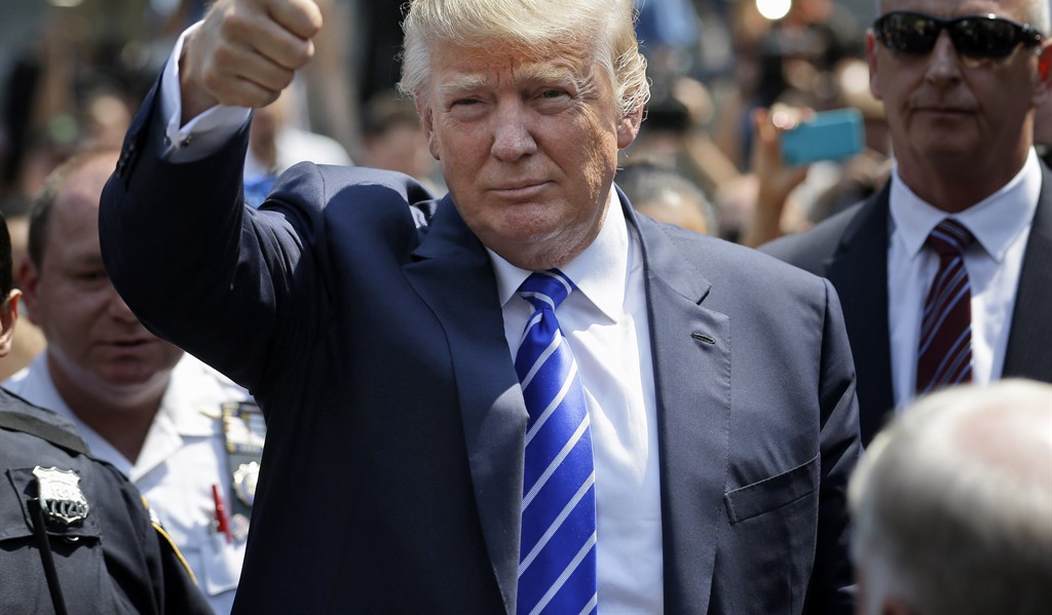A new chapter in American politics has begun.
Millions of Americans on the right and left have lost faith in their political parties, their government and even the economic system. Only 1 in 4 Americans are satisfied with the way things are going.
Policy experts will offer various arguments why at least some of these people are wrong to feel this way, but the discontented will not tolerate arguments that amount to "don't believe your lying eyes – or wallets." In politics, feelings are more important than hard numbers.
Consider immigration. I still believe that immigration is a net benefit for America, but those benefits aren't felt uniformly throughout society. Obviously, immigration is a huge boon to the immigrants themselves, something nobody disputes. Employers, whether in the tech sector or in agriculture, also reap disproportionate rewards. But for the typical consumer, the positive effects (cheaper food, construction, software, etc.) are hard to tie to the causes (the importation of cheaper labor).
Meanwhile, the negative effects seem all too apparent, at least for many Americans. This is true not just for people who believe, accurately or not, that their wages are lower and jobs are more scarce because of immigration (legal and illegal), but also for people who dislike the cultural disruptions that come with millions of non-English-speaking migrants pouring into the country.
Similarly, free trade has been an enormous boon to American consumers, but it doesn't feel like it, particularly to the workers who lost good jobs they'll never replace.
Add in the very understandable impression that the government is lying about – and incompetent at – taking these problems seriously, and you have the perfect preconditions for a populist backlash. And that's exactly what we are seeing.
On the left, Sen. Bernie Sanders of Vermont is unapologetic about his socialist views. He offers a searing indictment of modern capitalism and vows to "transform" the country.
On the right, Donald Trump, the GOP front-runner, is equally unapologetic about, well, everything, but in particular his nationalism. He lacks the vernacular of your standard nationalist, but the message comes through. He boasts that he is "the most militaristic person" in the world. His favorite national security idea is to build a wall – and to punitively make Mexico pay for it. His second favorite idea is to use the U.S. military to take Middle Eastern oil at gunpoint (30 years ago, he wanted to seize Iranian oil; now it's Iraq's oil where it's under the control of Islamic State).
In his just-released immigration plan, which is not the joke many of its critics claim, one of his core principles reads: "A nation that does not serve its own citizens is not a nation. Any immigration plan must improve jobs, wages and security for all Americans."
The first part is nonsense. A great many nations do not serve their own citizens; no one would seriously argue that North Korea or Panama aren't nations. But the second part taps into a very real perception about the moment we are in. Millions of people are convinced that the system is rigged against them. We constantly hear that income inequality is our greatest problem, and yet the Democrats insist there is essentially no downside to ever more poor people coming here legally or illegally. Republicans concede that illegal immigration is a problem, but they have proven feckless at fixing it.
What is fascinating is that though Sanders and Trump couldn't be more different culturally, their programs overlap a great deal. "What right-wing people in this country would love is an open-border policy," Sanders said recently. "Bring in all kinds of people, work for $2 or $3 an hour, that would be great for them. I don't believe in that." Trump's immigration paper states that "real immigration reform puts the needs of working people first – not wealthy globe-trotting donors."
Trump has said that there's little daylight between them on the issue of trade, while Sanders has praised Trump's favorable statements on single-payer health care.
The establishments of both parties have proved pitifully inept in fending off their respective nationalist and socialist insurgencies. I suspect they'll eventually succeed. But I also suspect this is not the end of the challenge, merely the beginning.
Sanders and Trump: Two Peas in a Pod?
The opinions expressed by columnists are their own and do not necessarily represent the views of Townhall.com.

Advertisement
Recommended
Trending on Townhall Videos
Advertisement
Advertisement
Advertisement
























Join the conversation as a VIP Member